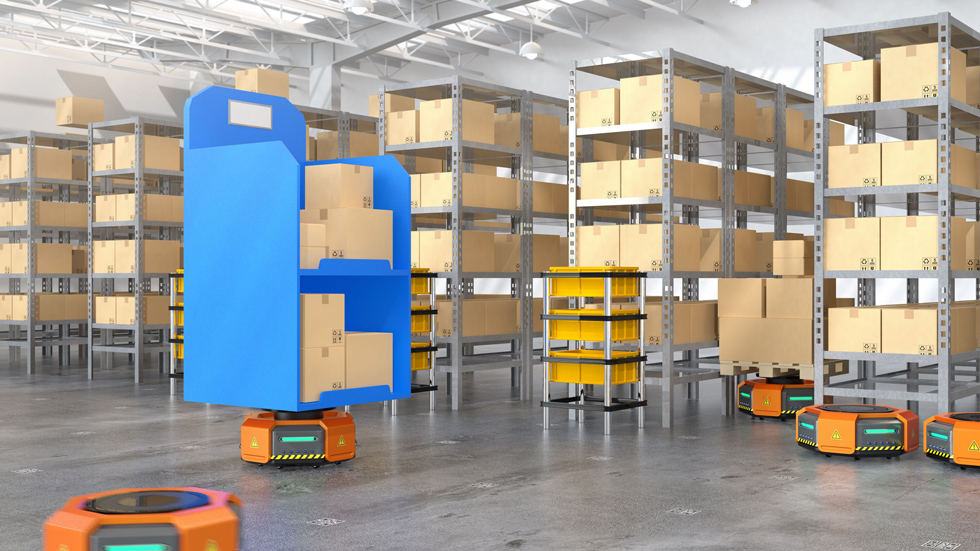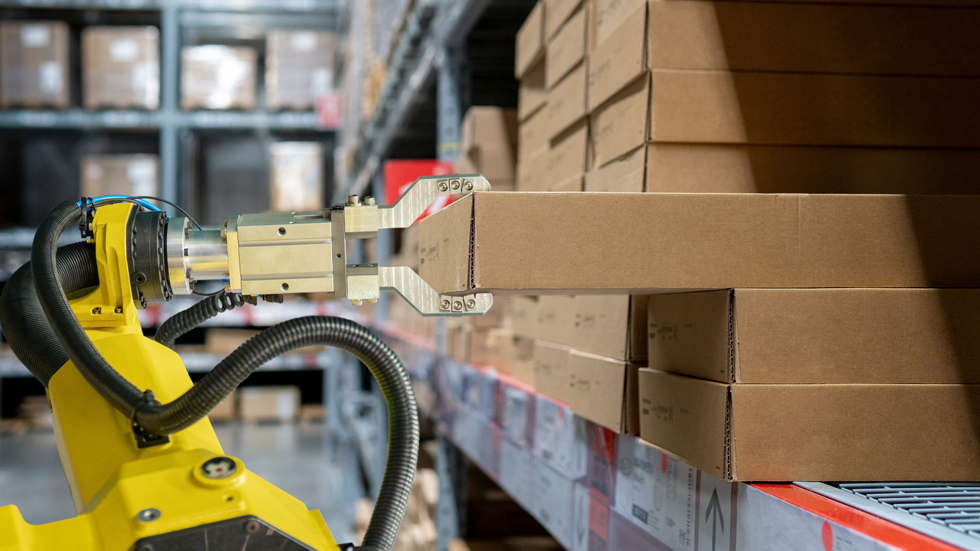Amid the well-documented pressures that global supply chains have experienced in the last few years, artificial intelligence (AI) and technology have been redefining the role of logistics real estate, says Sineesh Keshav, chief technology officer at Prologis, Inc. (NYSE: PLD).
“The starting point was a quest to use better data analytics and digitization to exploit inefficiencies in the supply chain,” Keshav says.
Keshav joined Prologis in May 2018 in the newly created role of CTO. With undergraduate and master’s level degrees in aerospace engineering, as well as an MBA, he joined the REIT after holding leadership roles in the financial, retail, insurance, and data services sectors.
Keshav says the core issues surrounding digital transformation today are similar across many industries. “Everyone is focusing on customer acquisition, retention, and loyalty—and putting data and technology at the center of decision making,” he says.
He adds that companies are dealing with the challenges of a fast-evolving technology landscape, while also “being saddled with their fair share of legacy tech, all while trying to increase value for diverse stakeholder groups whose interests don’t necessarily align.”
Vast Access to Data
With over 1.2 billion square feet of space in the most urban consumption centers worldwide, Prologis has an unmatched scale to serve its customers and, in turn, the end consumer, Keshav says.
“This access to data allows us to think beyond the four walls and a roof, bringing forth many product and service offerings to our customers to enable them to operate more efficiently and perform better commercially,” he says.
This vision is what has fueled Prologis Essentials, a platform where the REIT has expanded beyond its traditional real estate offerings into new products and services that offer its customers solutions to workforce issues, mobility and warehouse operations, energy and sustainability matters, and more. He notes that the REIT’s proprietary data and insights are powering all these new businesses.
Increasingly, Keshav adds, Prologis is seeing its customers using many new tools, including AI, the Internet of Things (IoT), and digital twins (virtual models that represent physical buildings) to track the movement of materials and people in its facilities, all with an eye toward digitalizing systems and improving the bottom line.
Keshav points that even before the current focus on generative AI, Prologis has been using supervised learning techniques for a while now for everything from better facilities management decisions to insights into commercial pricing and valuations of properties. Generative AI accelerates this trend with a plethora of new use cases, such as a richer customer service experience, being addressed by ChatGPT-like technology.
As a result, “our customers are asking for more innovative, connected, and data-rich facilities that provide an end-to-end view into their operations and costs, and allow for more flexibility in their operations,” Keshav says.
Filling a Need
When Keshav joined Prologis in 2018, the REIT was already aware that it could do more for its customers than just provide logistics real estate. An Oxford Economics study conducted in late 2017, in collaboration with Prologis, showed that 1.5% of the world’s GDP was flowing through its logistics properties (when the study was refreshed in December 2022, that number rose to 2.8%).
At the same time, the charter for the Prologis technology team was shifting from one of “keeping the lights on,” Keshav says, “to being an enabler for this business transformation by building and enhancing our core capabilities with an infusion of technology and data.”
Over the last five years, Prologis has been on a journey of “digital, data, and agile transformation all rolled into one,” Keshav says. That has involved establishing core capability teams covering every business aspect. “We have ensured that company-wide, change management and digital adoption have been prioritized with dedicated, focused teams.”
As a result, data literacy has been brought to the forefront and employees now understand the value of data-driven decision-making, he explains. “It has been an incredible journey and we are just getting started; The possibilities are endless.”
Ongoing Projects
Turning to some of the projects currently underway at Prologis that could have the biggest impact on tenants, and the end-consumer, Keshav points to the company’s goal to reach net zero emissions by 2040 and carbon-neutral construction by 2025.
“Building the systems, technology, and data infrastructure needed to make this happen is our priority, and I believe it will be a game changer for the industry,” he says.
Prologis, currently the second largest on-site solar producer in the U.S. according to the Solar Energy Industries Association (SEIA), believes it can dramatically increase its renewable energy production capacity and, in doing so, not only further its own sustainability goals but help its customers and the industry at large, Keshav notes.
Another ongoing project is Prologis’ plans to build a true digital twin for all its properties.
“The data and insights we can make available to our customers present an enormous opportunity as we increase the deployment of technology at our properties, such as sensors, electric meters, solar panels, battery storage installations, and fleet charging infrastructure,” Keshav says. In addition, even traditional business areas, such as facilities management, will be redefined by the introduction of digital twins, he adds.
Going to Where the Talent is
Achieving the many tech-related goals on Prologis’ agenda requires a lot of talent, something that is in high demand these days.
“We were early to this paradigm shift, but since the pandemic the world has caught on to this notion that you cannot expect good tech talent to come to you. Rather, you must go to where the talent is,” Keshav says.
With that in mind, Prologis has been hiring tech talent directly or through partners across the globe. That has helped with the intense competition that exists for technical talent today, Keshav says.
“Commercial real estate, in general, is not known for its technological prowess, which has been a perception we have had to fight. It’s been important for us to talk about our innovation and the work our IT team is doing,” Keshav says. The efforts appear to be paying off. “We’ve been thrilled with our attrition and recruitment,” he adds.


